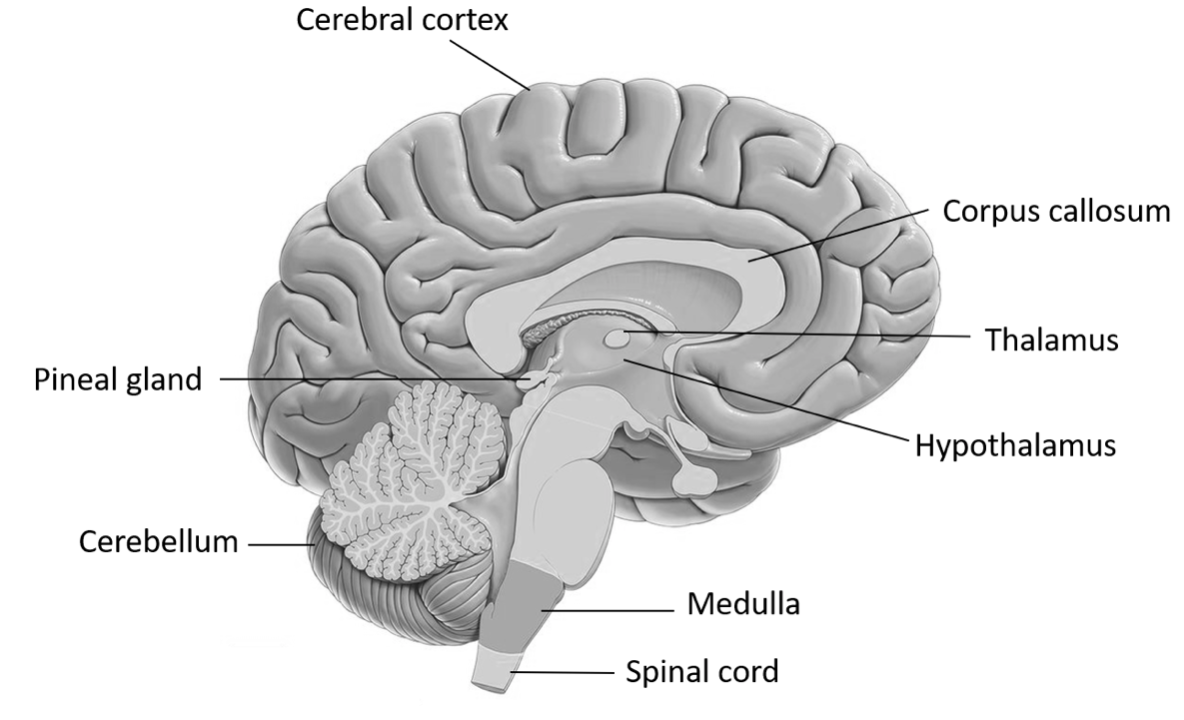
A drunkard has an unsteady walk, slurred speech, lack of coordination of thought speech, and action.
(a) Why does this happen?
(b) What is the long-term effect of alcohol addiction?
Answer
573.6k+ views
Hint: The nervous system of the body controls the walk balance and speech. The cerebellum located in the brain is mainly responsible for the maintenance of the coordination of the body. Consumption of alcohol can disturb that coordination.
Complete answer:
When a person consumes alcohol to a point where the body’s capabilities are compromised then they usually result in the slurred speech, an unsteady walk, lack of coordination in the body. This happens because alcohol blocks the chemical signals in the brain between the neurons thus leading to symptoms of the unsteady walk and slurred speech. It leads to lower downing of the person's reflexes hence inhibiting the responses to be made by the person.

Heavy alcohol consumption can lead to neuron damage. Which in turn hampers the signals sent from one neuron to the other. It can also lead to loss of the thinking capabilities of a person. A heavy drinker may also suffer from memory loss. The grey matter present in the brain also diminishes if alcohol consumption is not stopped. Excessive drinking can also cause physical illnesses. It can cause severe liver damage and can lead to various types of cancer. It also contributes to cardiovascular diseases. In females, it can lead to breast cancer. Regular and heavy drinking may also lower your immune system response. Such a person is likely to be affected by the cold and flu.
Note: People who become alcohol addicts need support and care to get rid of their addiction. Awareness should be raised against heavy drinking. The family should monitor their members for health concern reasons.
Complete answer:
When a person consumes alcohol to a point where the body’s capabilities are compromised then they usually result in the slurred speech, an unsteady walk, lack of coordination in the body. This happens because alcohol blocks the chemical signals in the brain between the neurons thus leading to symptoms of the unsteady walk and slurred speech. It leads to lower downing of the person's reflexes hence inhibiting the responses to be made by the person.

Heavy alcohol consumption can lead to neuron damage. Which in turn hampers the signals sent from one neuron to the other. It can also lead to loss of the thinking capabilities of a person. A heavy drinker may also suffer from memory loss. The grey matter present in the brain also diminishes if alcohol consumption is not stopped. Excessive drinking can also cause physical illnesses. It can cause severe liver damage and can lead to various types of cancer. It also contributes to cardiovascular diseases. In females, it can lead to breast cancer. Regular and heavy drinking may also lower your immune system response. Such a person is likely to be affected by the cold and flu.
Note: People who become alcohol addicts need support and care to get rid of their addiction. Awareness should be raised against heavy drinking. The family should monitor their members for health concern reasons.
Recently Updated Pages
Master Class 11 Computer Science: Engaging Questions & Answers for Success

Master Class 11 Business Studies: Engaging Questions & Answers for Success

Master Class 11 Economics: Engaging Questions & Answers for Success

Master Class 11 English: Engaging Questions & Answers for Success

Master Class 11 Maths: Engaging Questions & Answers for Success

Master Class 11 Biology: Engaging Questions & Answers for Success

Trending doubts
One Metric ton is equal to kg A 10000 B 1000 C 100 class 11 physics CBSE

There are 720 permutations of the digits 1 2 3 4 5 class 11 maths CBSE

Discuss the various forms of bacteria class 11 biology CBSE

Draw a diagram of a plant cell and label at least eight class 11 biology CBSE

State the laws of reflection of light

Explain zero factorial class 11 maths CBSE




